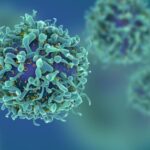Helping Children Cope with COVID-19 Stress and Pandemic Transitions
Stacey J. Drubner, JD, LICSW, MPH

EAP – “Ask the Expert”
Dr. Gene Beresin, Executive Director of The MGH Clay Center for Young Healthy Minds shares his expertise on how to support children coping with COVID-related stress and Pandemic transitions. EAP consultant Chris Skevofilax, LMHC conducted an interview with questions that were submitted by the Mass General Brigham community. Dr. Beresin’s helpful guidance is highlighted in this article and an accompanying video.
Transitioning Back to “Normal Life”
Some parents wrote with concerns related to the return to in-person activities, such as school or social outings.
Summary of guidance
Dr. Beresin stressed that an import first step is understanding some of the COVID related anxieties that kids may have. This can be achieved through conversation and observation. Some common concerns are listed below:
School Aged Children Concerns
- Getting parents or other family members, such as grandparents, sick
- Fitting in with friends
- Uncertainty about the world
- Catching up and keeping up with academics (especially special needs kids)
- Separation from parents (especially for younger kids)
- Adapting to the new structure at school and home
Teenager Concerns
- Concerns about losses, such as sports, clubs, milestone events, time with friends
- Ability to catch up on all that’s lost
- Getting into college without campus visits or standardized tests
- Getting a job or internship in the current climate
Guidance for Helping Kids Though Pandemic Transitions
- Control your own anxiety. Parental anxiety impacts how children cope
– Parents should engage in self-care, mind-body exercises and seek support - Be honest. Hiding things will affect trust and perceptions of credibility
- Engage kids. Don’t assume you know everything they are thinking and feeling
– Kids want to be understood and have worries such as “who will care for the new puppy” addressed
– Listen and validate
– Have frequent discussions
– Be open/patient even if questions are repetitive - Be positive-through narratives and family stories
– “Remember when hard things (weather, hurricanes) happened but we got through them”
– Assure children that positive things will happen again in the future - Explain that leaders on all levels (government, workplace), family and friends are aware of issues and are working to make things better
– Examples: vaccines, stimulus checks - Minimize media exposure for younger and anxious kids
- Watch and discuss media coverage with teens
Full Conversation with Gene Beresin, MD, MA, Executive Director, MGH Clay Center for Young Healthy Minds
Guidance for Returning to School
- Keep informed about school planning
- Explore tutoring options for kids who are behind
- Let kids know you will be in touch with the teacher, guidance counselor, School nurse
– Have conversations with school staff so they are ready and can check in - Ask for accommodations for shy children
– Arrange desks and lunch breaks with kids with whom they are friends/comfortable
How to Recognize Depression in Children and Adolescents
With all that children and adolescents have endured this past year, some parents are concerned about understanding how kids are doing and recognizing warning signs of depression.
Summary of guidance
Dr. Beresin stressed that parents know their children best and are likely to notice troubling symptoms or changes from previous behavior. Be on the look-out for the following:
School Aged Children Warning Signs
- Changes in sleep, appetite, energy
- Physical complaints
- Appearing angry or irritable
Teen Warning Signs
- Appearing irritable
- Lack of interest/engagement in regular activities
- Sleeping and eating more
- Problems with concentration
- Decreased energy
- Increased guilt, negative thoughts about self
Helping Children with Depression
- Don’t avoid discussion with your child/adolescent
- Don’t be afraid to ask about suicide. It might even be a relief to be given permission to discuss this
– 17-19% of teens surveyed by the CDC have thought about suicide - Validate and “level the playing field”
– “This stinks”
– “Even those who weren’t depressed or anxious before may be now”
– “We are all missing things”
– “It makes me sad too” - Get outside input from objective observers (teachers, relatives)
- If you are really worried, consult your pediatrician or get a psychiatric evaluation
– This is especially relevant to those who struggled with depression before the Pandemic. They are likely to experience an uptick in symptoms
Supporting Children and Adolescents coping with Grief and Loss
Some parents asked about grief (unrelated to death or illness), such as loss of other things-school, sports, milestones, time with friends and family. Some kids feel guilty or not entitled to have these thoughts when others are facing health issues.
Summary of guidance
Dr. Beresin recommended validating feelings and providing a forum for discussion. He suggested the following to address grief and loss:
- Encourage staying connected
– Extra screen time with friends and family, in-person meetings with masks - Engage in self-care-healthy diet, exercise, sleep, yoga, meditation
- Challenge catastrophizing- use Cognitive Behavioral Therapy (CBT) or similar techniques to reframe thinking
- Reiterate that good things in life will resume
- Take stock of things we may have taken for granted
- Frame family activities as a new, positive opportunities
– Be creative-collages, family play-lists, outdoor activities - Encourage the learning of new skills such as playing an instrument, cooking
- Give to the community or to those who have been impacted the most
Responding to Concerns about Different Families having Different Rules
Children notice that their friend’s family is taking vacations and having play dates, while your family is not. How can parents reconcile these differences?
Summary of guidance
Dr. Beresin reminded us that this concept was here before but has perhaps been made more complicated by COVID. The same general response works with COVID and non-COVID circumstances.
- Explain that each family is free to have their own rules and they won’t necessarily all be the same
- Avoid condemning another family even if you disagree with their rules
– Explain what your family believes and why
– “Some are willing to take a risk-we don’t want to. Not everyone is the same. This is what we choose to do” - Encourage kids to voice opinions but explain that the family unit is not a democracy
- Use collaborative problem-solving (3 baskets-non-negotiable, not worth fighting about and compromise) to guide decision making Visit MGH ThinkKids website
- Work with the other family to come up with a compromise so kids can see each other
– Have outside meet-ups
Will there be Long-term Effects from Increased Screen Time?
Just about everyone engaged in more time on devices over the last year. Should Parents be concerned about this?
Summary of guidance
In short-No. Dr. Beresin explained that screen time is not as dangerous as some believe. Technology is entrenched in society and allowed kids to stay socially connected and attend school/tutoring. Dr. Beresin recommended showing some flexibility during these difficult times, while evaluating the needs of each child. If a child is using screen time at the expense of other requirements and activities and seems off (socially, academically or emotionally), then intervention may be needed. He also suggests that parents should be aware of on-line activities and keep an open dialogue about this but should not “spy” on their children. A great site for guidance is CommonSense.org.
Impacts of Isolation on Development?
Parents are concerned that kids cannot make up for lost time because of isolation and gaps in activities related to the Pandemic. Will there be long term effects on the social, emotional, behavioral and academic growth process?
Summary of guidance
Dr. Beresin emphasized that people of all ages have the capacity to make up for lapses in development. The brain continually makes new connections and has complex and flexible capabilities. One example he provided relates to how the practice of meditation can impact the brain and lead to less anxiety and improved performance-physically and mentally. Dr. Beresin recommended monitoring what has been missed/where there are gaps. Then devise a plan to address these areas through partnering with teachers, family, friends and professional experts.
About Dr. Beresin and The Clay Center for Young, Healthy Minds at Massachusetts General Hospital
Gene Beresin, MD, MA, is Executive Director of The Clay Center for Young Healthy Minds at Massachusetts General Hospital (MGH), a full professor of psychiatry at Harvard Medical School (HMS), and senior educator in child and adolescent psychiatry at MGH
The Clay Center is a free, practical, online educational resource dedicated to promoting and supporting the mental, emotional, and behavioral well-being of children, teens, and young adults. The Center has a wealth of blogs, podcasts, and videos that can guide the mental health and well-being of youth and families, from social emotional and societal issues, to psychiatric disorders.
For confidential assistance, contact the EAP at 866-724-4327 or request an appointment via our online form.







